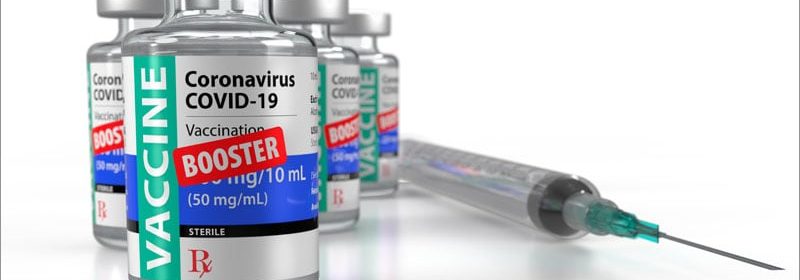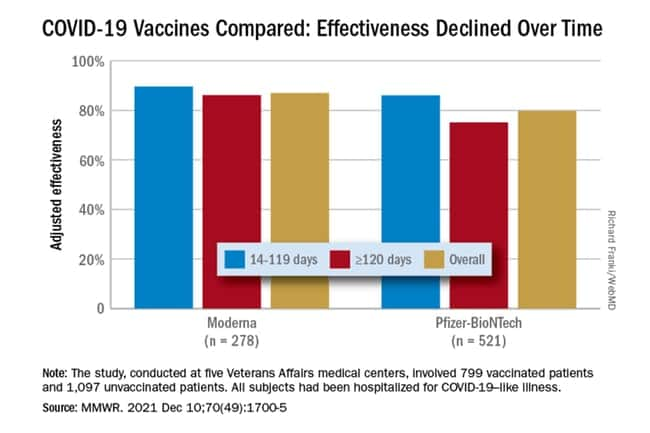Drop in COVID Vaccine Effectiveness Suggests Need for Boosters

Editor’s note: Find the latest COVID-19 news and guidance in Medscape’s Coronavirus Resource Center.
The effectiveness of the two most common COVID-19 vaccines declined over time in an older group of patients, suggesting that booster doses may be needed to protect recipients over the long term, according to a new study.
Also seen in that group of US veterans, who had a median age of 67 years: Those receiving “the Moderna vaccine consistently had higher antibody levels, compared with recipients of the Pfizer-BioNTech vaccine, across age groups and time since vaccination,” said Kristina L. Bajema, MD, of the CDC’s COVID-19 Response Team, and associates.
Effectiveness of the Moderna vaccine was 89.6% at 14-119 days after patients had received the second dose, compared with 86.0% for the Pfizer vaccine. After 120 or more days, vaccine effectiveness had dropped to 86.1% for Moderna and 75.1% for Pfizer, the investigators reported in the Morbidity and Mortality Weekly Report.
Levels of the relevant antibodies — anti-spike immunoglobulin (IgG) and anti-receptor binding domain (RBD) IgG — showed a similar pattern: Lower after the 120-day mark for both vaccines, but higher at both time periods for Moderna than for Pfizer. These differences in antibody levels are consistent with other studies, researchers said, and may be the result of the Moderna vaccine’s higher antigen content and its longer interval between doses.
All 1896 veterans in the study were enrolled while they were hospitalized with COVID-like illness at five Veterans Affairs medical centers around the country (Atlanta, Houston, Los Angeles, New York City, and Palo Alto, California). The group included patients who tested positive and those who were negative for COVID-19 when first hospitalized; 799 eventually were fully vaccinated. About 58% of the group was age 65 years or older.
Both vaccines were more effective in younger patients: 89.4% for those under 65 years and 72.9% for those 65 and older in the Pfizer group, compared with 94.5% and 78.6%, respectively, for Moderna. The same drop-off in effectiveness after 120 days was seen for both age groups, the researchers noted.
The age effect may be cause for concern.
“Overall, for both vaccine products, antibody levels in this cohort of older US veterans with high prevalences of underlying medical conditions were substantially lower than levels seen among younger, healthy volunteers or healthcare personnel in other studies,” they said, adding that booster doses may be needed “to help maintain long-term protection against severe COVID-19.”
For more news, follow Medscape on Facebook, Twitter, Instagram, and YouTube.
Source: Read Full Article
